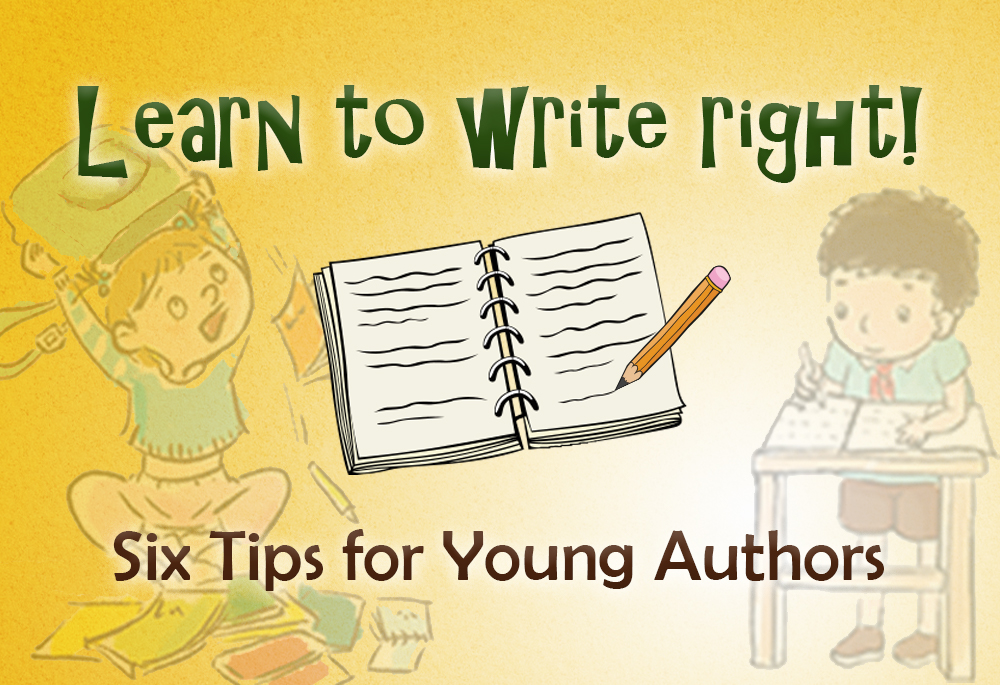Everybody knows the great writers whose renown transcends generations: Shakespeare, Vernes, García Lorca, Tolstoy… How could a kid like me ever write something that compares to their literary masterpieces? Why can’t I be the next J.K. Rowling?
If you’ve ever felt this way, you aren’t alone; it can be intimidating to reflect on the piles and piles of wonderful books and poems that already exist, wishing that your work could someday be among the classics. But don’t fret if you feel you lack what it takes to pen novels like Orwell—writing skills can be developed and improved. With practice, perseverance, and patience, any writer can create something worth celebrating… and maybe even have it published!
Top Six Tips from DC Canada’s Writers
After reading through all the submissions from our One Story a Day Writing Contest (2018-2019), our team put together a list of writing tips to help aspiring authors like those who participated in our contest.
Write down all your ideas. Keep a notebook with you or have a section on your phone where you store information, from character sketches to vague plot points. No matter how silly they seem, you might be able to develop these ideas later. When you have a story outline, write a draft right away. Don’t worry about finding the perfect words for each sentence or correcting your spelling mistakes. Just get your thoughts on paper and see what you create.
Research, but not too much. If your futuristic society uses bones as currency, so be it! Write with confidence and make your audience believe that the world you’ve built isn’t silly or impossible. Develop rules for your society—if people can use magic, is there a price to pay? Can everyone use it? How have they obtained it? Don’t be surprised if you suddenly have 16 tabs open on your laptop with pages on everything from medieval weapons to the average lifespan of a lizard. But make sure you don’t get lost in the black hole that is the Internet… you’re here to write, after all!
Show, don’t tell. Use descriptive words like adjectives and adverbs to paint pictures for your readers. A writer’s best friend is often a thesaurus. Why describe your character as having very big hands when you could say he has enormous hands? And when you’re writing dialogue, mix up the tags! Instead of “I don’t want to go,” said John, disappointed, say “I don’t want to go,” John groaned. This way, you’re both saving words and describing your story better.
Make every word count. Whether it’s a short story, a Twitter post, or a seven-book series, don’t waste any words. Be creative, but use precise vocabulary and avoid repetition. If a sentence doesn’t benefit the reader by either furthering the plot or developing the characters or setting, seriously consider removing it. If you are working with a specific word count (ex: 100-word limit), respect it. A few words over or under won’t change much, but anything more than that risks a heavy penalty—such as disqualification from a contest or a failing grade at school.
Edit, edit, edit. Now that you have a first draft, take at least as much time polishing it as you did writing it! Look for spelling and grammar errors, improvements you could make to sentence structure, details you might add, and consistency—if you’re writing in first person present tense, your story shouldn’t end in third person past tense. Once you have a good draft, ask a friend, parent, or teacher to read your story and offer you some feedback.
Write everything. Try to write about something you know well, like an experience, topic, or genre with which you are familiar. It’s usually easier to write in the first person, even if your protagonist is living something you never have. Tell the story from your point of view to better understand how your character would feel! Then, try different kinds of writing: poetry (freestyle or set forms, like haikus or sestinas), prose, fiction, non-fiction, fantasy, sci-fi, historical fiction, first-person narration, third person… Challenge yourself to grow as a writer. Never stop practicing!
Finally, remember that it’s okay to daydream about your (unwritten) trilogy being turned into famous films. I know I’ve chosen the actors for my second draft that I don’t work on enough! But none of that can happen if you don’t sit down to write. So, take a seat, think outside the box, and start creating.
We’d love to hear from you! Share your best writing tips on our social media and check out our One Story a Day series on our website!

